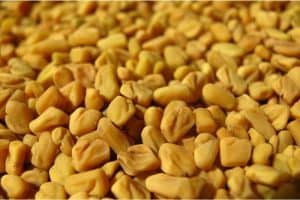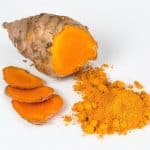The talk around fenugreek seeds has always been controversial. A spicy herb derived from the fenugreek plant, the seed has conflicting effects, and its benefits vary from person to person. It is known to lower the chances of gestational diabetes in women and induces labor pain, bringing labour sooner, in some cases. In some women, the seed has helped enhance breast milk production and mitigate hormonal imbalance.
However, the seed has certain labor inducing properties that can boost contractions. Now, depending on your due date, this can be a benefit or a harmful effect. In some cases, it helps speed up delivery by inducing contractions, but if you consume it well before your due date it can lead to premature birth or miscarriage! Some studies also indicate that mothers who include fenugreek in their pregancy diet tend to have babies born with neural tube defects. Other downsides of fenugreek include allergic reactions and digestive problems. Women have also reportedly felt a funny, maple syrup smell in their urine.
So in conclusion, when it comes to clarifying the doubts related to fenugreek consumption during pregnancy, we recommend that you eat it in moderation, and preferably stop its intake a good 3 to 4 months prior to pregnancy. Also, do not forget to consult your doctor for further advice.






